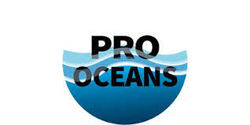
PROJECTS
 distantcom_web |
|---|
 Imagen1 |
|---|
 Proyecto Flame logo |
|---|
 logo_web |
|---|
FLAME PROJECT (2014-2015)
The main objective of FLAME project is to know the levels of pollutants and behavior of flame retardants (FRs) in the marine ecosystem of the Gulf of Cadiz, in order to establish the potential risks at the level of conservation of top predators (cetaceans) as well as the possible effects of these pollutants on human health.
IsoLampro PROJECT (2016-2017)
Understanding trophic ecology of the California kingsnake (Lampropeltis californiae), a new invasive species in Gran Canaria (Canary Islands, Spain).
The aims of the project are: 1) compare the trophic niche that occupy California kingsnake populations in the main and in the secondary center of invasion. 2) determine if there are changes in the trophic niche associated with sex and the ontogeny of the specie.
ECOCET PROJECT (2012-2015)
Trophic Ecology of cetacean in southern Iberian waters
The main objectives of the project are: 1) to evaluate the trophic ecology of cetaceans inhabiting southern Iberian waters through stable isotope analysis; 2) to analyse stable isotope ratios of carbon and nitrogen in teeth of the cetacean collection at the Estacion Biologica de Doñana (CSIC) to investigate the ontogenic diet changes of different cetacean species; 3) to calculate the diet-to-tissue discriminant factor and turn-over rate for bottlenose dolphin skin.
 cetasur |
|---|
CETASUR (2014-2015)
Cetáceos al Sur del Mediterráneo Español
The main objective of Cetasur Project is to study the abundance and distribution of top predators, in particular finned pilot whales and bottlenose dolphins in the south of the Alboran. Sea, through photo-identificacion and density surface modelling. Also the project will study the anthropogenic threats that are facing this populations for a proper conservation management.
DISTANTCOM - DIversity and STructure of benthic ANTarctic COMmunities [CTM2013-42667/ANT] - (2015-2017)
The aims of the project are: 1) the determination of the ecological activity of marine natural products obtained from benthic organisms through chemical ecology experiments; 2) the study the evolutionary history of a selection of Antarctic invertebrates by studying their diversity, phylogeography and genetic connectivity among their populations and 3) the establishment of the trophic relationships among organisms along the Antarctic peninsula and assess the bioaccumulation of contaminants though the food web.
 BB |
|---|
BLUEBIO - Bioactive marine natural products in an environmentally changing planet - (2017-2019)
The BLUEBIO project aims to analyze the variability, the production and the bioactivity of natural products from selected marine benthic organisms from different areas of the planet: Antarctica, Mediterranean and Tropics. BLUEBIO will study six selected groups of organisms (algae, sponges, cnidarians, molluscs, bryozoans, and tunicates), for which one species of a single genus will be selected.
 logo_SEAProx |
|---|
SEAProx - Using biogeochemical regions as a proxy to 3D marine conservation - (2018)
The SEAProx project aims to perform a gap analysis to assess the current protection of biogeochemical regions in the Mediterranean Sea within each bathome (epi-, meso- and bathypelagic and seafloor). Further, the conservation equality between biogeochemical regions will be evaluated..
 Pelweb |
|---|
PELWEB - Winners, losers and shifts of PELagic food WEB changes in the western Mediterranean Sea: from ecosystem consequences to future projections (2018-2020)
The goal of PELWEB is to quantify past and present ecological and socio-economic consequences of SPF spatial-temporal population changes on iconic predator species, fisheries and ecosystem dynamics, and identify robust future management options to achieve resilient populations and prevent critical transitions towards degraded ecosystem states.
 pelcatweb3 |
|---|
PELCAT - Decline of small pelagics in the Catalan Sea: potential role of plankton change and pollution (2020-2021)
The aim of the PELCAT project is to advance into the understanding of the reasons of the decline of small pelagics fish (SPF) in the northwestern Mediterranean during the last two decades. We will focus in two of the most understuided aspects: diet change and plastic pollution.
 Pelweb |
|---|
PELWEB - Winners, losers and shifts of PELagic food WEB changes in the western Mediterranean Sea: from ecosystem consequences to future projections (2018-2020)
The goal of PELWEB is to quantify past and present ecological and socio-economic consequences of SPF spatial-temporal population changes on iconic predator species, fisheries and ecosystem dynamics, and identify robust future management options to achieve resilient populations and prevent critical transitions towards degraded ecosystem states.
 logo web 2 - copia_edited |
|---|
FUTUREMARES - Climate Change and Future Marine Ecosystem Services and Biodiversity (2020-2024)
FutureMARES is an EU-funded research project examining the relations between climate change, marine biodiversity and ecosystem services. Our activities are designed around two Nature-based Solutions (NBS) and one Nature-inclusive Harvesting (NIH): Effective Restoration (NBS1), Effective Conservation (NBS2), Nature-inclusive Harvesting (NIH)
 PROOCEANS |
|---|
PROOCEANS - Fostering the capacity of marine ecosystem models to PROject the cumulative effects of global change and plausible future OCEANS (2021-2024)
ProOceans aims to advance the capacity of marine ecosystem models (MEMs) to forecast future scenarios of global change by improving the mechanisms used to project species distributions and ecosystem changes.
 mercurycet |
|---|
MercuryCET: Total Mercury and Mercury isotopes as chemical tracers of pollution and ecology in cetaceans. (2022-2023)
MercuryCET aism to analyse Total Mercury (THg) in conjunction with Hg stable isotopes and traditional stable isotopes (δ13C and δ15N) in an entire cetacean community.